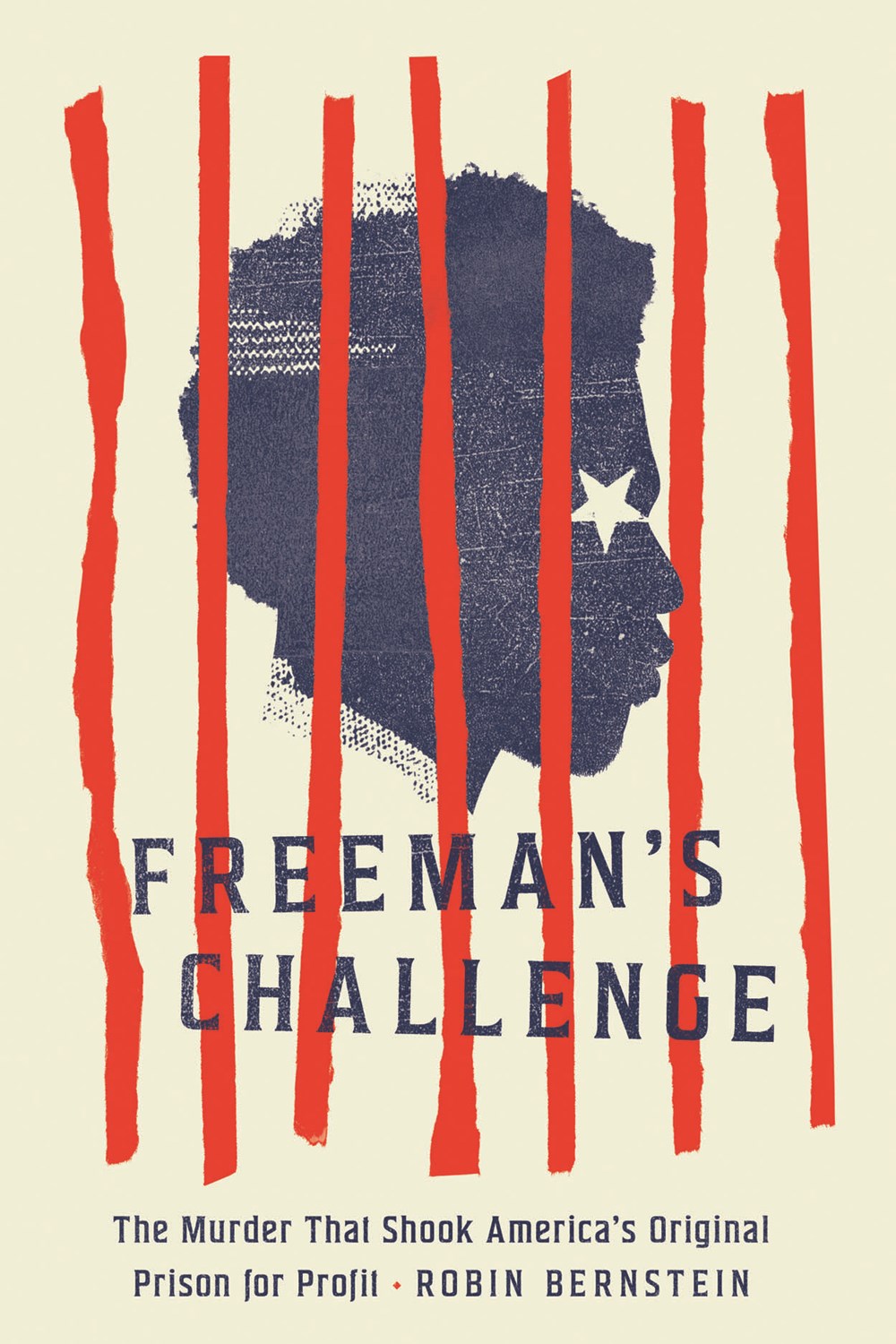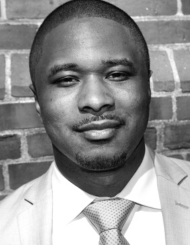-
Freeman’s Challenge: The Murder That Shook America’s Original Prison for Profit
Price $27.50Hardccover
In Stock

Robin Bernstein at Harvard Book Store
presenting
Freeman’s Challenge:
The Murder That Shook America’s
Original Prison for Profit
in conversation with BRANDON M. TERRY
DateMay
17
Friday
May 17, 2024 7:00 PM ET |
LocationHarvard Book Store
1256 Massachusetts Ave., Cambridge, MA 02138 |
Tickets
This event is free; no tickets are required.
|
Harvard Book Store and the Hutchins Center for African and African American Studies welcome ROBIN BERNSTEIN—Dillon Professor of American History at Harvard University and the author of Racial Innocence—for a discussion of her new book Freeman’s Challenge: The Murder That Shook America’s Original Prison for Profit. She will be joined in conversation by BRANDON M. TERRY—co-director of the Institute on Policing, Incarceration, and Public Safety at the Hutchins Center for African and African American Research.
About Freeman's Challenge
In the early nineteenth century, as slavery gradually ended in the North, a village in New York State invented a new form of unfreedom: the profit-driven prison. Uniting incarceration and capitalism, the village of Auburn built a prison that enclosed industrial factories. There, “slaves of the state” were leased to private companies. The prisoners earned no wages, yet they manufactured furniture, animal harnesses, carpets, and combs, which consumers bought throughout the North. Then one young man challenged the system.
In Freeman’s Challenge, Robin Bernstein tells the story of an Afro-Native teenager named William Freeman who was convicted of a horse theft he insisted he did not commit and sentenced to five years of hard labor in Auburn’s prison. Incensed at being forced to work without pay, Freeman demanded wages. His challenge triggered violence: first against him, then by him. Freeman committed a murder that terrified and bewildered white America. And white America struck back—with aftereffects that reverberate into our lives today in the persistent myth of inherent Black criminality. William Freeman’s unforgettable story reveals how the North invented prison for profit half a century before the Thirteenth Amendment outlawed slavery “except as a punishment for crime”—and how Frederick Douglass, Harriet Tubman, and other African Americans invented strategies of resilience and resistance in a city dominated by a citadel of unfreedom.
Through one Black man, his family, and his city, Bernstein tells an explosive, moving story about the entangled origins of prison for profit and anti-Black racism.
Praise for Freeman's Challenge
“Freeman’s Challenge is a provocative, robust, and rigorously researched interrogation of the historical meaning of imprisonment. Bernstein’s compelling narrative provides insight not only into the institution of the prison in the United States but also into the lives of those whose newly experienced dreams of freedom were crushed by evolving intersections of punishment and racial capitalism. By disengaging the emergence of the prison from what has become its inevitable partner—‘rehabilitation’—Bernstein deftly reveals the deep connections between imprisonment, racism, and the development of the capitalist economy.” —Angela Davis, distinguished professor emerita, University of California, Santa Cruz
"In this narrative tour de force, Bernstein offers a riveting and heartbreaking account of one Afro-Native adolescent’s refusal to be broken by an inhumane New York prison. Freeman’s Challenge is itself a challenge, presenting a bold new argument about the Northeastern roots of an exploitative carceral labor system and the racialized ideology of criminality that followed the formal end of slavery. This study shines a bright light on the interconnected histories of US prisons and economic development; race, indigeneity, land loss, and uncompensated work; and the complications of abolitionist rhetoric, representational politics, and Black community defense." —Tiya Miles, author of All That She Carried: The Journey of Ashley’s Sack, a Black Family Keepsake, winner of the National Book Award
"As Bernstein‘s stunning latest makes so clear, well before the rise of mass incarceration, and long before passage of the Thirteenth Amendment and its deadly sanctifying of slave labor behind bars, American prisons were sites of deep racial injustice, extraordinary abuse, and brutal labor exploitation. Indeed, they were never built to be sites of redemption, but rather have always existed as places to establish and reinforce this nation’s race and class inequalities. As this narrative also shows, however, America’s prisons were also always sites of unfailing and Herculean resistance. And therein lies the future." —Heather Ann Thompson, author of Blood in the Water: The Attica Prison Uprising of 1971 and Its Legacy, winner of the Pulitzer Prize
Masking Policy
Masks are encouraged but not required for this event.
Walking from the Harvard Square T station: 2 minutes
As you exit the station, reverse your direction and walk east along Mass. Ave. in front of the Cambridge Savings Bank. Cross Dunster St. and proceed along Mass. Ave for three more blocks. You will pass Au Bon Pain, JP Licks, and TD Bank. Harvard Book Store is located at the corner of Mass. Ave. and Plympton St.
Unable to attend a Harvard Book Store author event? You can still pre-order a signed book by one of our visiting authors.
While we can't guarantee fulfillment of a signed book pre-order, our authors are almost always able to sign extra books to fulfill such orders.
Ordering a signed book on harvard.com:
- Add the book to your shopping cart and then click Checkout.
- Specify in Order Comments that you want a signed copy of the book.
- Please note: online orders for signed copies must be placed at least one business day before the event. If you are ordering the day of, please call us instead.
Ordering a signed book by phone:
- Call us at (617) 661-1515 and one of our booksellers will take your order. Specify you'd like a signed copy.
- If you are requesting a personalized inscription and/or requesting your book be shipped, we'll need to take down credit card information. If you are planning to pick up the signed book in the store, you can pay on pick-up.
FAQ:
Can I request a personalized inscription?
Unless otherwise noted, we are happy to take requests for the author to sign your book to a specific person, but we can't guarantee it. If you do get a personalized inscription, the book will be non-returnable. We will require credit card information when you place the order.
Do signed books cost more?
There is no extra fee for a signed book!
Do I have to pick it up in the store, or can you deliver my signed book?
As with all web or phone orders, we can hold your book for in-store pickup, or ship it anywhere in the country.
I am planning to attend an author event. Do I need to pre-order a book?
No need. We'll be selling books at the event, and nearly all of our events include a signing at the end of the talk.
More questions? Give us a call!

The Hutchins Center for African & African American Research at Harvard University supports research on the history and culture of people of African descent the world over and provides a forum for collaboration and the ongoing exchange of ideas. Learn more at hutchinscenter.fas.harvard.edu.
(617) 661-1515
info@harvard.com
Media Inquiries
mediainquiries@harvard.com
Accessibility Inquiries
access@harvard.com
Classic Totes
Tote bags and pouches
in a variety of styles,
sizes, and designs, plus mugs, bookmarks, and more!
Shipping & Pickup
We ship anywhere in the U.S. and orders of $75+ ship free via media mail!
Learn More »Noteworthy Signed Books: Join the Club!
Join our Signed First Edition Club (or give a gift subscription) for a signed book of great literary merit, delivered to you monthly.
Learn More »









